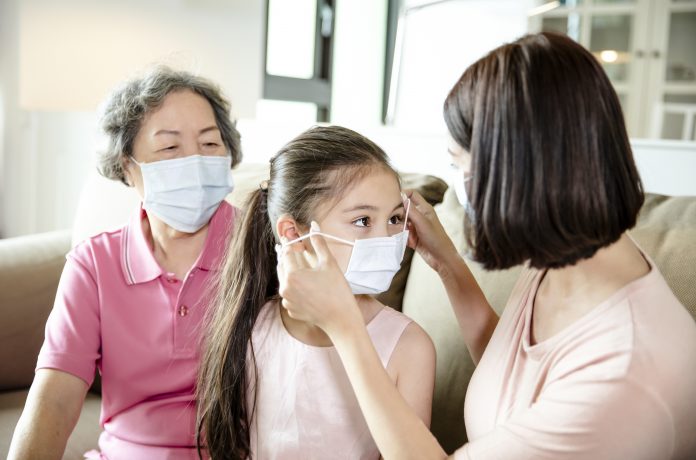Three new research projects have received a share of £9 million to investigate how air pollution in indoor spaces can affect human health
In the UK, air pollution is responsible for an estimated 40,000 early deaths a year.
Now, funding from UK Research and Innovation (UKRI) will be used to better understand how the composition, concentration and exposures of air pollutants affect children with asthma and people living in urban homes.
‘40,000 early deaths a year’
Environment Minister Rebecca Pow said:
“Indoor air pollution is a critical public health issue.
“Building our understanding and evidence base around it is essential so that any future action is appropriately targeted and effective.
“The government is already taking important steps, including phasing out the sale of coal and wet wood, a major contributor to the emissions of fine particulate matter, and making it easier for local authorities to tackle emissions from domestic burning through our Environment Bill.
“These projects will help add to our evidence base, building on the forthcoming report from our Air Quality Expert Group and guidelines published by Public Health England to help us all better understand this issue.”
Chemical and biological pollutants
The first of the three projects will follow 100 households in west London with at least one child with asthma and monitor chemical and biological pollutants within their home.
Professor Frank Kelly, of Imperial College London, who is leading the study, said:
“This is an ambitious and complex programme of work which will substantially improve understanding of indoor pollution exposure and its effect on children living in urban environments.
“By working closely with existing community groups and schools, together our joint efforts will have a much better chance of success of improving the wellbeing of children, especially those with asthma.”
Indoor air quality in UK homes
In another project, a team made up of scientists from four universities will work with Bradford Teaching Hospital NHS Foundation Trust and Born in Bradford to track and quantify:
- The composition of pollutants within indoor spaces, such as those from cooking and cleaning, and how these chemically react
- How air pollutants from indoor air sources affect outdoor air quality and vice versa
- How different occupant behaviours affect production of and exposure to air pollutants, and how in turn this affects health outcomes and health inequalities.
Professor Nicola Carlsaw of the University of York, who is leading the study, explained:
“This study will investigate the causes of poor indoor air quality in UK homes in more detail than ever before.
“Studying the Born in Bradford cohort allows us to focus on the health impacts of poor air quality in deprived urban areas and compare them with more affluent areas.
“Through studying how occupant behaviour affects air pollution exposure indoors, we aim to design interventions that will lead to healthier buildings.”
Pollutants in our environment
In a third project, researchers will develop a new platform to evaluate current and future pollutants in our environment.
Using a chamber that can accurately simulate different types of air pollution exposure, the new platform will identify how toxic different types of air pollutants are, including diesel exhaust fumes, woodsmoke and cooking emissions.
Leading the project, Professor Gordon McFiggans, of The University of Manchester, said:
“Our exciting new collaboration will build national capability, enabling fundamental understanding of toxicological mechanisms causing adverse health outcomes from exposure to various air pollutants.
“Using this platform, we will study impacts of pollution on neurological disease, providing a hazard ranking of pollutant sources.
“This can inform policy decisions about the sorts of pollution to avoid to reduce ill health.
“Our platform will be used in future to study other diseases.”
Professor Sir Duncan Wingham, Executive Chair of the Natural Environment Research Council (NERC), part of UKRI, said:
“Poor air quality affects millions of people in the UK, and this research will help us better understand how indoor spaces interact with pollutants, causing poor health.
“Air pollution is a key funding priority, and these studies are part of a multi-million-pound investment by UKRI in monitoring, reducing and mitigating the impact of pollutants on the planet and our health.”











